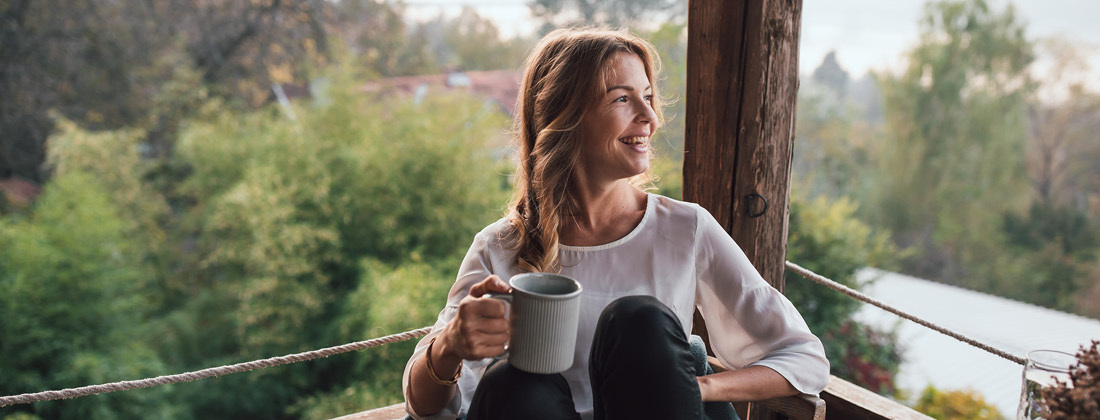
Some like it hot - some love it iced. What’s the verdict on coffee? You’ll find plenty of opinions online. But what does the science say? Is it OK to drink coffee every day? How much should you have per day? Our uniqueness means our daily maximums are different. We have tips to help figure out the right amount for you. Ultimately the answer depends on your body type, genes and health status.
For lots of us, coffee is a much-loved part of our morning ritual. That all-important ‘me time’ when we go into a mindful state. It’s also a cultural and social thing too - meeting for coffee can be a centre point of socialising.
Coffee enthusiasts love that caffeine hit to get going in the morning. Coffee is popular worldwide resulting in scientists doing plenty of interesting research on it.
Coffee Antioxidants
Coffee is a natural plant extract. It’s a little-known fact, coffee has more antioxidants than red wine! Interestingly, lab tests show coffee has more antioxidants than green tea, black tea, and cocoa too. Also, espresso has higher levels than instant.
Caffeine is familiar, but coffee also has plenty of plant antioxidants like, chlorogenic, ferulic, caffeic, and n-coumaric acids and melanoidins.
Over-doing coffee does have drawbacks. Most are related to having too much caffeine. So, moderation is key.
Signs that you’ve had too much coffee:
- Agitation
- Nervousness
- Insomnia
- Irregular heartbeat
- Headache
If this sounds like you after having coffee, it could be wise to curb your consumption. It’s likely you are caffeine sensitive or a slow metaboliser. Perhaps cut down to one cup per day, or swap to decaf or a coffee alternative like Dandelion Coffee or Cacao.
It’s in your Genes
How much coffee you can drink depends on your DNA. Scientists have found genes that determines how coffee affects you. One gene, Cyp 1A2, codes how well your body metabolises caffeine - how well you tolerate caffeine and how sensitive you are to its effects. There are gene companies that test for this, but you can also figure it out by observing how caffeine affects you. Take note of the following next time you have a cuppa:
- If you find the effects of coffee take hours to wear off, it’s likely you’re a slow metabolizer. If you drink coffee after lunch, does it affect your sleep? If yes, it’s better to limit your intake to 1 cup or less daily.
- On the other hand, if you notice caffeine hits you sooner but doesn’t seem to affect you for very long, you’re likely a fast metaboliser. Fast metabolisers often drink coffee at night with no effects on sleep. Because fast metabolisers can process caffeine better, they tend to tolerate a higher intake without adverse effects (as long as it’s under the healthy limit listed below.)
How many cups of coffee a day is too much?
The science says the maximum healthy daily level is around:
- 3 cups of espresso (116 mgs per shot)
- 4 cups of instant (60-80 mgs per cup)
This will vary depending on how strong you brew it. It's best to have less than 400 mgs of caffeine daily, according to a review by FSANZ (Food Standards Australia & NZ).
Also, keep other caffeine sources in mind when tallying your daily total:
- Tea = 50mg per cup
- Cola drinks = 36mg per can
- Energy drinks = 80-120mgs per 250ml
- Chocolate = 10mg per 50g bar
- Cacao = 5 mg per teaspoon
Should you avoid coffee?
If you’re genetically gifted as a fast metaboliser, you probably don't need to limit your coffee to less than the healthy level.
If you have certain health issues, you may benefit from limiting or avoiding caffeine altogether, for example:
- Anxiety
- Insomnia
- Osteoporosis
- PMS
- Menopause
These conditions can be made worse by caffeine for various reasons, so it’s ideal to cut it out. Read on for some healthy alternatives.
Coffee during pregnancy
Technically, there’s no official standard in NZ. Some studies set a limit of 200mg of caffeine per day and some studies suggest no caffeine at all. Being pregnant slows down caffeine metabolism and it also crosses the placenta. So, if pregnant it's to wise keep your intake at one cup or less daily.
Hydrate, hydrate, hydrate
Coffee makes you lose water more quickly through urine, so for every cup you drink, aim to drink an extra glass of water to replace it. Also, our hydration levels naturally drop overnight as we sleep, so it’s better to make your first drink a glass of water rather than a coffee.
Set a cut off time
If you’re sensitive to caffeine or a slow metaboliser, a cut off time is a good strategy – set a time for the latest you will drink coffee. For example, as a slow metaboliser my cut off time is 11 am, and my max is one cup of coffee per day.
Life without caffeine
If you’re not genetically gifted as a fast caffeine metaboliser, you’re caffeine sensitive or you're affected by one of the conditions above, then switching to a coffee alternative or decaf may suit you.
Cold turkey vs: the slow-wean
If you decide to curb your consumption, reducing slowly can be easier on your body than going ‘cold turkey’. The brain adapts to daily caffeine, so slowly weaning over a couple of weeks gives the brain time to adjust to lower caffeine levels.
The slow-wean method can take the edge off caffeine withdrawals, to help minimise tiredness, irritability, and trouble focussing which are common. If you love the routine and ritual of coffee, having decaf or a coffee alternative can make the change easier.
What about decaf?
Decaf is great because you can still enjoy the taste without the extra caffeine stimulation. Water decaffeinated is best because other solvent methods can use harsh chemicals. If it’s water decaffeinated, you’ll find it clearly marked on packaging.
Coffee alternatives
Looking to avoid or cut down on caffeine? Fortunately, if your daily intake has started to creep up, there are lots of excellent alternatives.
Dandelion Coffee
Dandelion coffee is an awesome choice if you love coffee but need to cut down on caffeine. It has a similar look and taste to regular coffee and is caffeine-free. It’s delicious, slightly earthy taste offers bitter notes just like coffee does. It’s made from Dandelion root (Taraxacum officinale) which is roasted to produce caramel flavours. It comes in loose grounds or in granules, making it easy to substitute for coffee - try our Dandelion Coffee range.
Cacao
Cacao is an excellent coffee alternative. Cacao is nutrient dense from the chocolate plant – Theobroma cacao. With our Cacao range you can still enjoy the ritual of a delicious hot drink with healthy vitamins, minerals and antioxidants too.
Functional Lattes & Brews
Trying hard to cut down or stop altogether? Sometimes having an alternative makes it easier. These are caffeine-free, healthy drinks that have added herbal, mushroom and spice ingredients. Packed with plant antioxidants and delicious, interesting flavours - from turmeric lattes to mushroom brews there’s plenty to choose from in our Functional Lattes & Brews.
What is functional coffee?
Functional coffee is next level coffee, it’s a way to turn your coffee into a supplement. You get coffee with added healthy ingredients to make it even better. Level up your coffee with our Functional Coffee range:
- Coffee Creamers - with collagen for skin health and keto-friendly MCT, including dairy free options
- Mushroom Blends - for healthy immune support, mental alertness and an antioxidant boost
- Keto Coffee - with ingredients to support your ketogenic state and healthy physical and mental energy
We’re all different, with unique needs (and caffeine wants!) so customising your cuppa intake is important. Take note of how you feel during and after your next coffee, and explore our growing range of Functional Coffee when you want more out of your brew.

